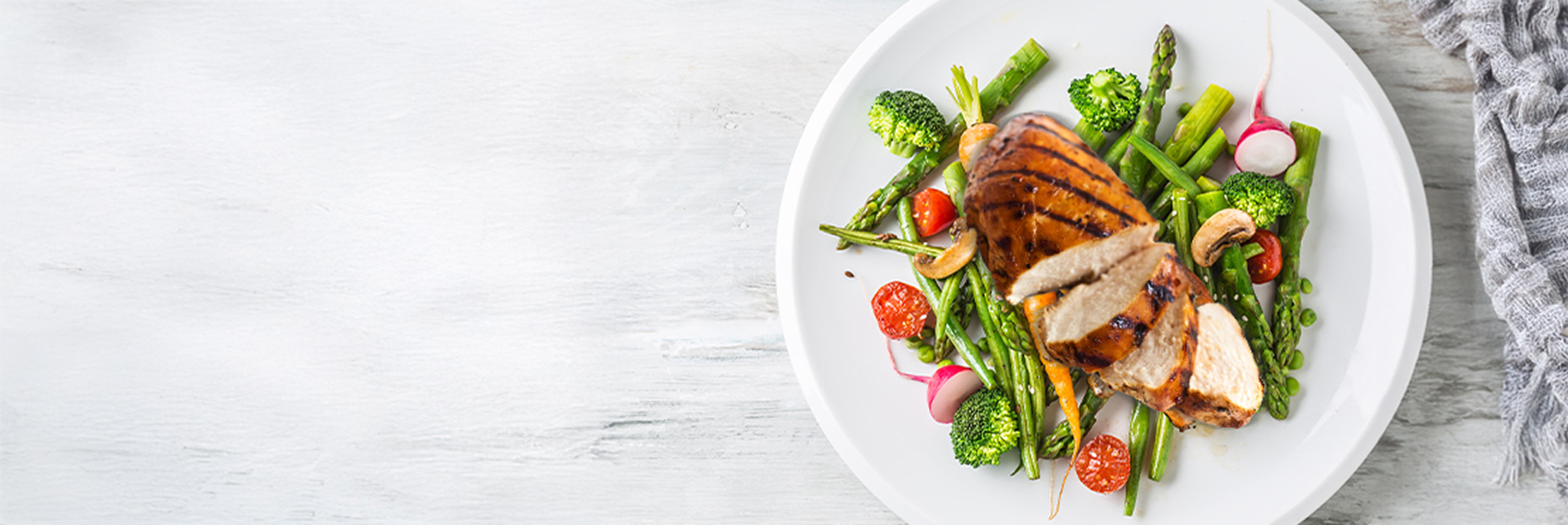Sodium and Fluids
What does sodium do?
Sodium is an important mineral and electrolyte. It helps to maintain fluid balance, regulate blood pressure, and supports the electrical activity of the nerves and muscles. The more sodium you have, the more water your body retains.
Where does sodium come from?
Naturally occurring in many foods, sodium can be added to food during processing, or when preparing food at home. It is important to know your sodium sources and to limit your sodium intake as much as possible. But watch out, many salt substitutes that are used to help avoid sodium contain potassium, which you should also avoid if you have chronic kidney disease. Check with your healthcare professional for your intake recommendations.1
Good sodium choices
- Fresh herbs and salt-free spices (eg, garlic powder, onion powder, paprika, etc)
- Unsalted crackers, popcorn, graham crackers
- Lean beef, pork, turkey, chicken, fish
- Homemade soups, canned vegetable without added salt, fresh or frozen vegetables
- Plain noodles, rice
Poor sodium choices
- Table salt, seasoning salt, bottled barbeque sauce, steak sauce, soy sauce
- Fast food, frozen dinners, restaurant take-out food
- Salted snacks, (pretzels, popcorn, chips)
- Cold cuts/deli meats, ham, bacon, sausage, hot dogs
- Pickles, sauerkraut, olives
What roles do sodium and fluids play in chronic kidney disease (CKD)?2
When kidneys are damaged, they can no longer filter wastes and maintain fluid balance.
As excess sodium and fluid accumulate, blood pressure increases. Your ankles may swell and fluid can build up around your heart and lungs.
How are kidney disease and heart disease related?3
The heart and the kidneys work together. Kidney disease can place significant stress on the cardiovascular system. Similarly, an unhealthy cardiovascular system impacts kidney function.
Why is it important to control fluid intake?
Low-sodium diets are recommended for those who require dialysis, not only to help keep blood pressure and fluid in check, but also to avoid cramping and blood pressure drops on dialysis days.
Although dialysis helps remove excess fluids, fluid can still build up quickly in between dialysis treatments. Whatever you drink throughout the day counts as part of your fluid intake.
Nepro® is low in sodium, containing 12.5% (250 mg) of the recommendation limit (2000 mg).2
References:
1. Low Salt Flavor Enhancers. National Kidney Foundation website. https://www.kidney.org/patients/kidneykitchen/con-tent/salt_free_seasonings
2. Sodium and Your CKD Diet: How to Spice Up Your Cooking. National Kidney Foundation website. https://www.kidney.org/atoz/content/sodiumckd. Accessed May 15, 2018.
3. National Kidney Foundation website. https://www.kidney.org/atoz/content/heart-and-kidney-connection. Accessed May 15, 2018.
Ask your healthcare professional for more information about Nepro.
Use under medical supervision.

